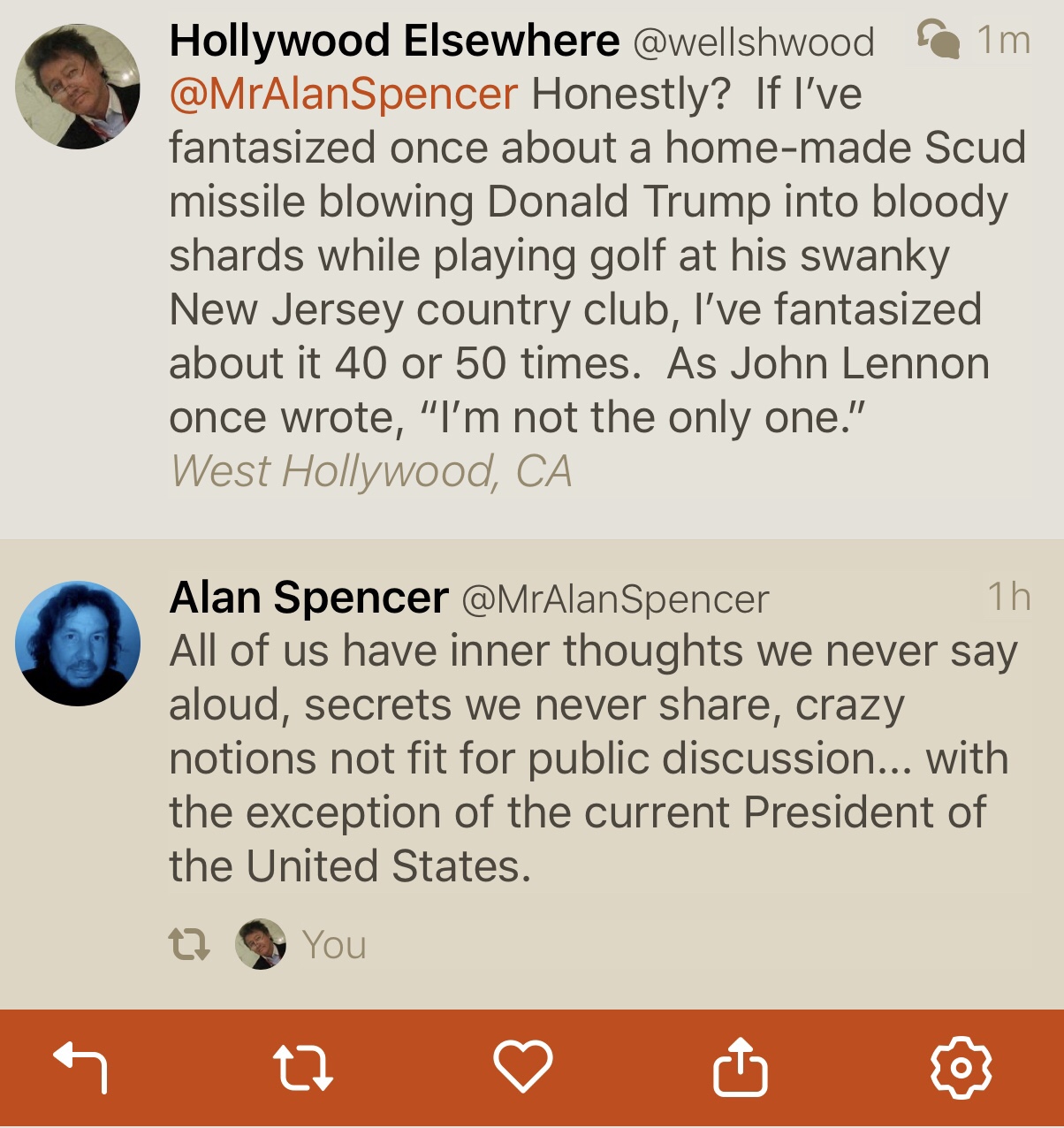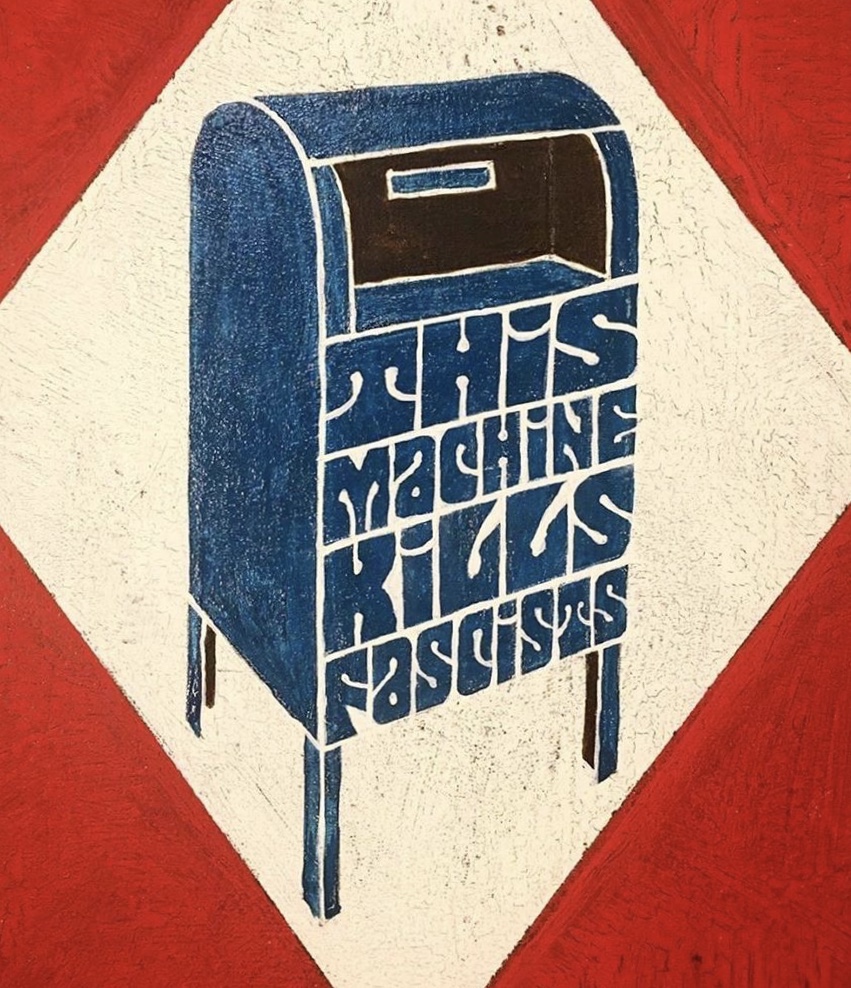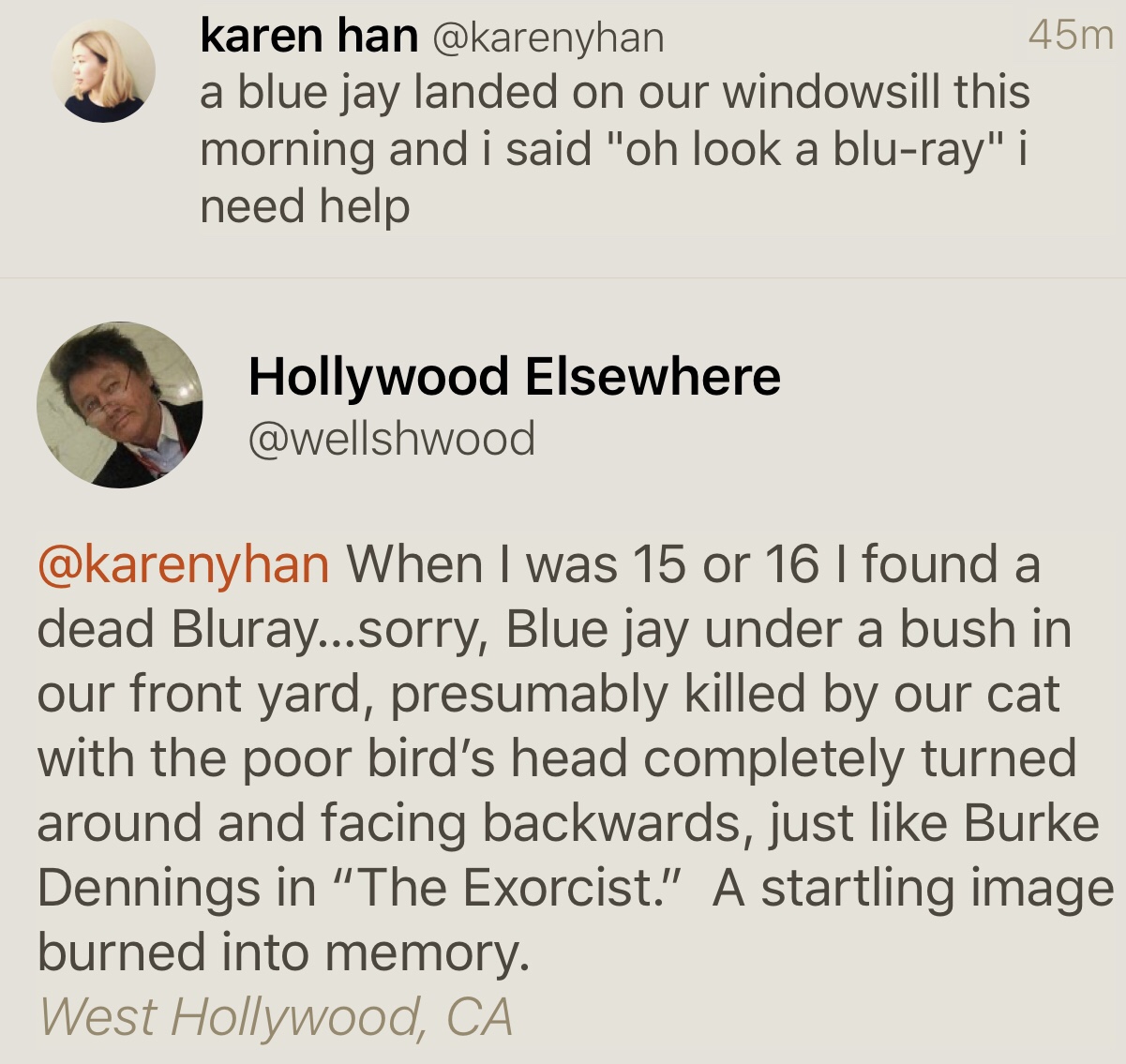…because of the mess it would leave on the carpet. This may be my favorite wiggy-flicky-schizo Nic Cage scene of all time (and that includes all of his eccentric behaviors in Vampire’s Kiss).
Dance, Part 1
kamala harris marching with marching band drums playing dancing drummers dancers walking cheering happy pic.twitter.com/uHqNWPhWow
— reaction videos (@findurmeme) November 7, 2019

Small Quibble
I haven’t received my Kindle review copy of Glenn Kenny‘s “Made Men” (Hanover Square Press, 9.15.20), a 400-page history of the making of Martin Scorsese‘s Goodfellas (’90).
Critic and book author Shawn Levy (“Rat Pack Confidential”, “The Castle on Sunset”), whom I’ve known for years, has called Kenny’s book “impeccably researched, fluently written, and infused with insight, wit and mastery…exactly what you want from a making-of-your-favorite-movie book. From mob stories to the nuts-and-bolts business of crafting a masterpiece, it’s all here…you’d have to be a real schnook not to read it.”
I don’t want to make a big deal about this but I was little perplexed about the book’s front cover, which shows the rear half of a bullet-riddled pink Cadillac.
The allusion, of course, is to the pink Caddy bought by Frank Pellegrino‘s Johnny Dio (aka “Johnny Roastbeef”) with a wad of stolen Lufthansa loot. Robert De Niro‘s Jimmy Conway, the Lufthansa heist ringleader, is infuriated that Johnny bought the damn thing after being warned not to spend money on anything flashy.
Johnny tries to explain it away (“It’s in my mother’s name”), offers a soft apology (“Sorry, Jimmy”), etc. Nonetheless three or four scenes later he and his blonde wife end up whacked in the front seat of the Caddy.
The problem is that Johnny Roastbeef’s pink Caddy is a 1979 model with a white top, and the caddy on the book cover is a ’63 or ’64 model with mild fins and no white top. Plus the color of movie version is ripe and loud while the book-cover version is pinkish beige.
This is not a capital crime on the part of the book-cover designer, but why not use the caddy we all saw in the movie? Obviously it’s an easy get — a no-brainer. I’m just not understanding the ’63 or ’64. The snafu doesn’t hurt anyone or get in the way of the actual content (i.e., Kenny’s research, reporting and seductive prose style) but again…why?
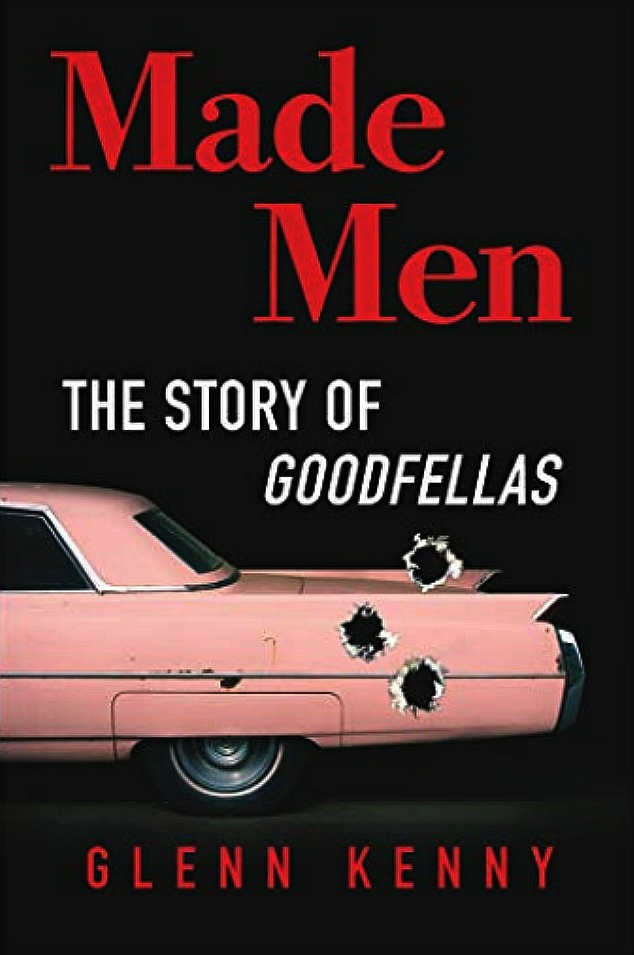
Rear section of a 1963 or ’64 pink Cadillac.
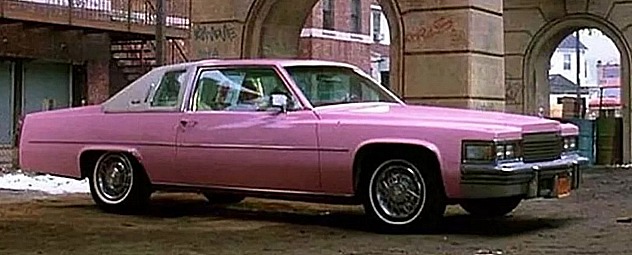
Johnny Roastbeef’s 1979 pink Caddy as shown in Goodfellas.
“If I Had A Bell…”
Poor Trini Lopez, 83, died earlier today from COVID complications. Lopez was first and foremost a pop singer who caught a wave between the late ’50s and late ’60s, particularly from his recordings of Pete Seeger and Lee Hays‘ “If I Had A Hammer” (’63) and Will Holt‘s “Lemon Tree” (’64).
Wiki excerpt: “Lopez was still recording and performing in recent years. He took part in a benefit concert to raise money for the victims of the 2004 Indian Ocean earthquake and tsunami and recently appeared as a guest performer in a number of shows held in Maastricht in the Netherlands with the Dutch violinist and composer André Rieu. Lopez’s ‘El Immortal’ was released in 2010, and in 2011 he released his 65th album, ‘Into The Future.'”
I’m not sure if Lopez was a serious Rat Pack member or not, but he did take part in a 1965 Soupy Sales pie-fight taping with Frank Sinatra and Sammy Davis, Jr.
Yes, Lopez costarred in The Dirty Dozen but that was hardly his most noteworthy achievement.
Biden-Harris Have To Stand Up To Strident Wokesters, Chaotic Left
Joe Biden and Kamala Harris obviously have the upper polling hand against Trump-Pence, but they could lose some of their support and perhaps even risk weakening a potential pro-liberal Congressional tsunami if they don’t stand up to strident leftism.
By this I mean (a) the Neverending Street Protests in Portland, Seattle and Chicago (and particularly the looting), which average Americans are sick to death of, and (b) the Stalinist scourge of extreme wokesterism, cancel culture and 1619 Project absolutism.
I’m serious — if Joe and Kammy don’t grow a pair and say “enough!” or at least “dial it down” to lefty hardcores, they could be facing a tougher situation come early November.
Yesterday a Black Lives Matter organizer named Ariel Atkins defended widespread looting in Chicago last weekend, calling it “reparation.”
“I don’t care if somebody decides to loot a Gucci’s or a Macy’s or a Nike because that makes sure that that person eats…that makes sure that person has clothes,” Atkins said at a Chicago rally on Monday, according to WMAQ-TV.
Atkins: “That’s a reparation. Anything they want to take, take it because these businesses have insurance.”
WHAT??
This is what I mean — if Biden and Harris don’t say “no, you’re wrong, Ariel…looting will not be tolerated,” things could change.
Police Superintendent David Brown said Monday that 100 people have been cuffed and 13 cops were injured during overnight clashes. Brown and Mayor Lori Lightfoot said the looting was not a part of an organized protest.
“[That] was an incident of pure criminality,” Brown remarked.
HE to Ariel and other Chicago street assholes: Thanks, guys! Keep it up! Maybe you can help swing the general election to Trump…who knows?
Biden Pairs With Harris
It’s official: Joe and Kammy will co-campaign against Trump-Pence between now and Tuesday, 11.3.
Joe Biden announced a few minutes ago that he’s chosen Sen. Kamala Harris as his vp running mate. Aside from three concerning factors that don’t warrant mentioning in the lead paragraph**, Hollywood Elsewhere throughly approves of the strategy behind this choice. Harris will do little harm, and her selection increases Biden’s chances of defeating The Beast, not that Biden’s poll numbers weren’t already beating Trump nationally as well as in several battleground states.
A superb confirmation-hearing interrogator and a tough prosector and former California Attorney General, Kamala is going to make Donald squeal and suffer. She’s going to rip him a new anal cavity on a regular weekly basis. She’s going to take a razor-sharp ginzu knife and open him up like a can of beans. The same will happen to Pence during the virtual Vice-Presidential candidate debate.
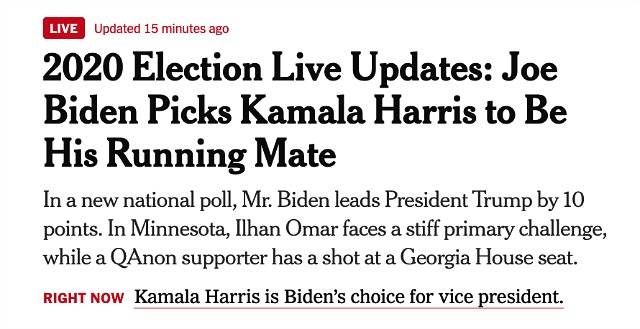
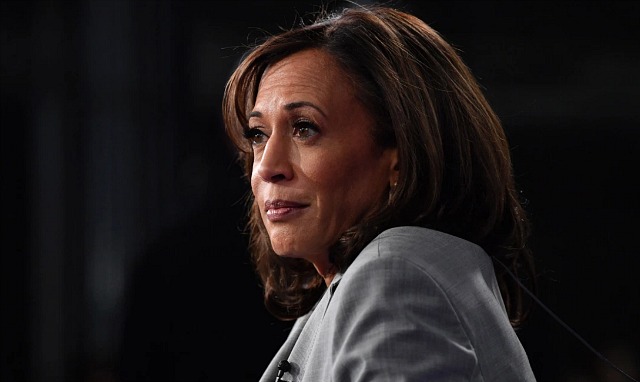
N.Y. Times excerpt: “After her own presidential bid disintegrated last year, many Democrats regarded Ms. Harris as all but certain to attempt another run for the White House in the future. By choosing her as his political partner, Mr. Biden may well be anointing her as the de facto leader of the party in four or eight years.”
Don’t kid yourselves — Kamala will almost definitely run in 2024 as the likelihood of 82 year-old Biden running for re-election that year is not high.
Biden announced five months ago that he’d pick a woman to be his vice president, and most of the Democratic chorus seemed to agree he should do that.
Just to be clear, Harris isn’t a boilerplate “African American” as much as a mix of Jamaican-American and Indian-American. Her father, Donald Harris, is a Jamaican emigre who is a Stanford University Emeritus Professor of Economics, and her late mom, Shyamala Gopalan, was Indian American. On top of which Harris is married to a white-dude attorney, attorney Douglas Emhoff. (They exchanged vows in Santa Barbara six years ago.)
Three days ago Harris’s ex-boyfriend, former San Francisco mayor Willie Brown (’96 to ’04), wrote in a San Francisco Examiner op-ed that Harris should “politely decline” any offer to be Biden’s running mate. Brown wrote that the vice presidency would likely hinder any further political ambitions for Harris.
“Historically, the vice presidency has often ended up being a dead end. For every George H.W. Bush, who ascended from the job to the presidency, there’s an Al Gore, who never got there,” Brown wrote.

Hubba Hubba
So an early-ish cut of Andrew Dominik’s Blonde (Netflix), a fictionalized version of Marilyn Monroe’s life by way of Joyce Carol Oates’ book, has been seen and praised by Oates.
It was announced last May that Blonde, which stars Ana de Armas, had been bumped into ‘21 due to pandemic pressures. But the 2020 Oscar calendar has also been extended into 2.28.21, which is six and a half months hence.
For a film that began shooting a year ago and has now, according to Oates, been assembled into a striking, satisfying whole, what could be the problem with releasing it before the late February deadline?
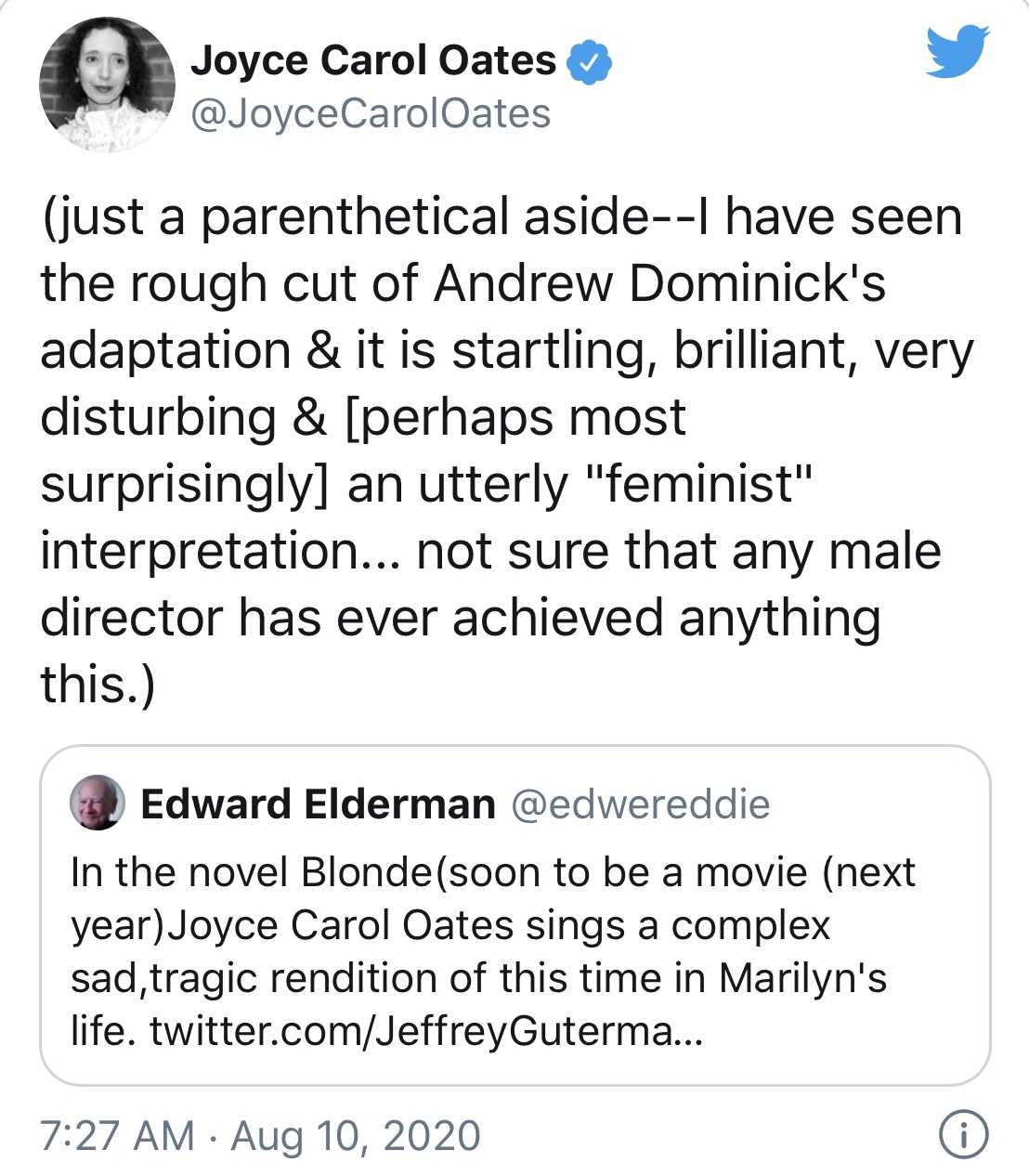
If Biden Picks Whitmer…
Several essayists and commentators of color will be disappointed. That’s understood. If I was Biden I’d go with Kamala Harris or Susan Rice, but if he chooses Whitmer or Elizabeth Warren…well, what of it?
Van Jones and others are saying “don’t Tim Kaine us!…we represent 13% of U.S. voters, dammit, and we want what we want.” The implication is that voters of color may sit in their hands if it’s not Harris or Rice or another qualified black woman.
Excuse me? And allow The Beast to serve another four years?
We all understand the primal longing to see an African-American woman fill the slot, but decent people are not allowed to sit on their hands come 11.3. That’s an appalling thing to even suggest.
Incidentally: If I wasn’t Biden but my own true self relying on my own perceptions and brain power, I would choose Pete Buttigieg in a heartbeat. Remember how Fox voters expressed support for Pete to a certain extent last fall? They respected him and felt a certain kinship because of his religious beliefs and moderate-practical liberalism.
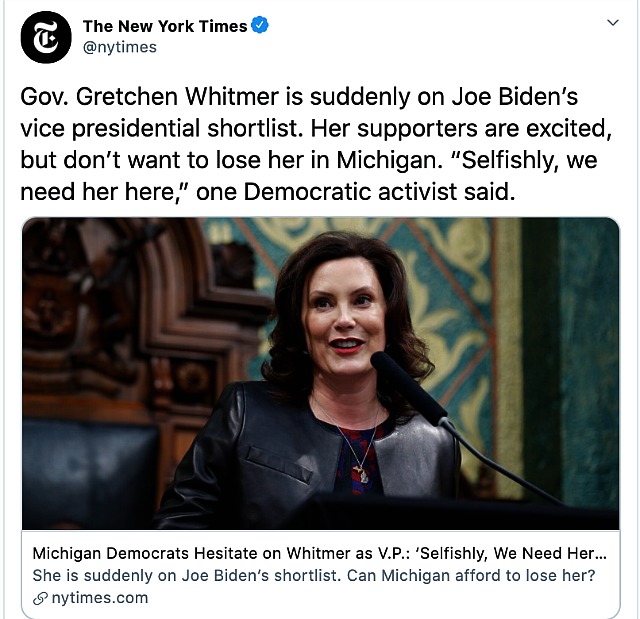
If @JoeBiden picks Gov. Whitmer for VP, we’re going down the 2016 road all over again.
Is Gov. Whitmer a great leader? 100%. But there are black women who are equally capable, equally competent, and would excite far more voters. Don’t take the black vote for granted!!!! pic.twitter.com/4w0gO8S5J1
— Van Jones (@VanJones68) August 11, 2020
Bloomberg & Steyer to Rescue?
At least as far as Election Day (11.3.20) is concerned.
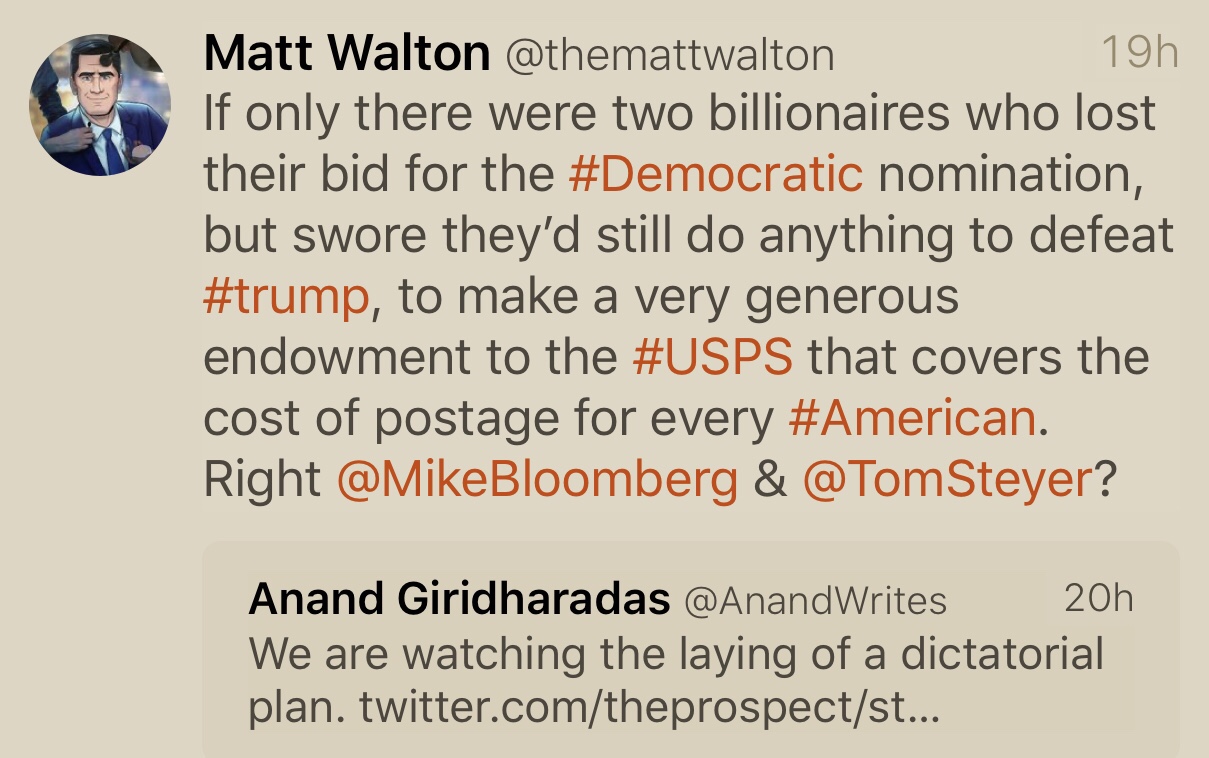
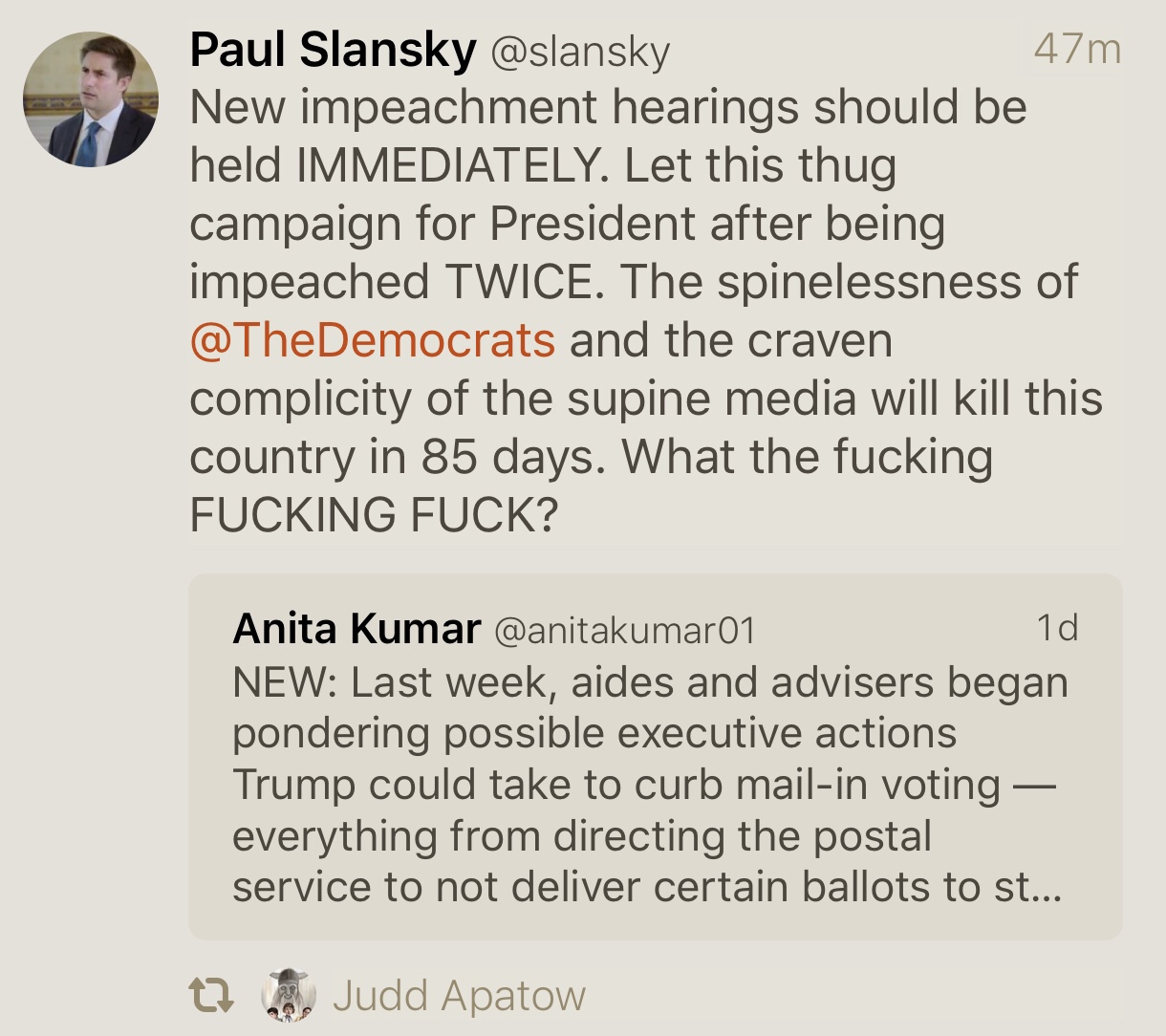
The Only Moustaches That Worked
In the long history of movie moustaches, only four have seriously enhanced an actor’s aura — Clark Gable‘s pencil-thin, career-long ‘stache (a 27-year stretch from ’33 to ’60), Robert Redford‘s in Butch Cassidy and the Sundance Kid (’69), Burt Reynolds‘ “Smokey” ‘stache and Billy Crudup‘s upper-lip growth in Almost Famous.
I guess I could bend over backwards and admit that Billy De Williams‘ Lando moustache in Episode #5 and #6 of the Star Wars saga was cool. And okay, Sam Elliott‘s handlebar in The Big Lebowski had a certain folksy authenticity. I’ll also allow that Daniel Day Lewis‘s Bill the Butcher ‘stache completed the satanic aura. Plus [thanks to HE commenters] David Niven, Douglas Fairbanks Sr. and Jr., Ronald Colman, William Powell, Errol Flynn, Lee Van Cleef, Vincent Price, Groucho Marx and Ernie Kovacs.
But otherwise moustaches are generally annoying and almost always a mistake. Certainly in a present-day context. And not just on-screen.
Moustaches are a machismo thing, of course. We’ve all read about rock stars stuffing toilet paper into their underwear before going on stage. I’m not saying each and every wearer of a moustache is coming from the same place, but they’re definitely looking to flaunt their masculinity.
It’s my personal theory that the moustaches worn by Jack Nicholson and Warren Beatty in Mike Nichols‘ The Fortune caused that film to tank, or were certainly a decisive factor in that regard.
From Gunfighter Wiki page: “20th Century Fox hated Gregory Peck‘s authentic period mustache in The Gunfighter (’50). In fact, the head of production at Fox, Spyros P. Skouras, was out of town when production began. By the time he got back, so much of the film had been shot that it was too late to order Peck to shave it off and re-shoot. After the film did not do well at the box-office, Skouras ran into Peck and reportedly said, ‘That mustache cost us millions.'”




